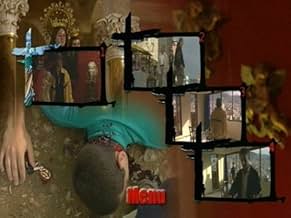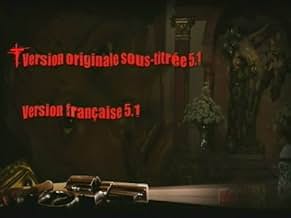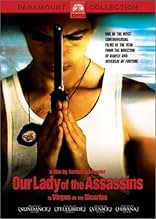IMDb RATING
6.8/10
4.3K
YOUR RATING
The writer F. Vallejo returns to Medellin after an absence of over 30 years. He meets 16-year-old Alexis. Alexis is the kind of killer who knocks people off on command. The two are immediate... Read allThe writer F. Vallejo returns to Medellin after an absence of over 30 years. He meets 16-year-old Alexis. Alexis is the kind of killer who knocks people off on command. The two are immediately attracted to each other.The writer F. Vallejo returns to Medellin after an absence of over 30 years. He meets 16-year-old Alexis. Alexis is the kind of killer who knocks people off on command. The two are immediately attracted to each other.
- Awards
- 3 wins & 3 nominations
Storyline
Did you know
- TriviaFilm debut of Anderson Ballesteros.
Featured review
Medellin is a dangerous city in more ways than one is lead to believe. At the time of the action, Pablo Escobar's empire has been dismantled and his loyal soldiers are scattered all around the city engaging in a game of death, revenge and petty vendettas. There is no reverence for life in a place that has seen violence on a daily basis and where children have access to guns for protection in order to survive in that environment.
Barbet Schroeder, the German director, expands on Fernando Vallejo's novel, which the author adapted for the screen, resulting in a highly violent and bloody film that is disturbing, as well as true.
Fernando, the older gay man who comes back to his native city of Medellin, quickly finds a boy to satisfy his needs. Alexis, the young man, is seen at first at the all-male brothel where he is offered by the pimp to Fernando. Alexis turns out to be something the older man didn't expect. This is a boy that is savvy in the ways of how to survive in the city, who clearly takes an interest in the older, and richer Fernando.
Alexis is a marked man and it's only a matter of time; his days are numbered because there are other youths behind him that will do whatever in their power to eliminate him. Fernando can't believe what his city has become, but he has no desire to go away again. When Alexis is killed, Fernando mourns his death until Wilmar, another young gay man appears in his orbit. Little prepares Fernando to realize who Wilmar is really.
Fernando's comments on the situation in his city, as well as in the Colombian reality, are the basic themes of the film. While one side of him cries for that old place he knew as a child, he welcomes this new metropolis full of danger and people that attracts and repulses him at the same time.
German Jaramillo appears to be the alter ego for the writer, Fernando Vallejo, whose story seems to resemble that of the Fernando in the novel and in the film. Mr. Jaramillo's take on Fernando keeps him away from the confrontations between his young lovers and what he thinks is right. He never passes judgment on what the young people are doing, yet he is instrumental for providing the bullets that Alexis needs to defend himself. The other two young actors, Anderson Ballesteros and Juan Diego Restrepo, play Alexis and Wilmar respectively.
Barbet Schroeder has directed the film with all its realism showing us a society in which all hope seems to have abandoned the citizens of the city.
Barbet Schroeder, the German director, expands on Fernando Vallejo's novel, which the author adapted for the screen, resulting in a highly violent and bloody film that is disturbing, as well as true.
Fernando, the older gay man who comes back to his native city of Medellin, quickly finds a boy to satisfy his needs. Alexis, the young man, is seen at first at the all-male brothel where he is offered by the pimp to Fernando. Alexis turns out to be something the older man didn't expect. This is a boy that is savvy in the ways of how to survive in the city, who clearly takes an interest in the older, and richer Fernando.
Alexis is a marked man and it's only a matter of time; his days are numbered because there are other youths behind him that will do whatever in their power to eliminate him. Fernando can't believe what his city has become, but he has no desire to go away again. When Alexis is killed, Fernando mourns his death until Wilmar, another young gay man appears in his orbit. Little prepares Fernando to realize who Wilmar is really.
Fernando's comments on the situation in his city, as well as in the Colombian reality, are the basic themes of the film. While one side of him cries for that old place he knew as a child, he welcomes this new metropolis full of danger and people that attracts and repulses him at the same time.
German Jaramillo appears to be the alter ego for the writer, Fernando Vallejo, whose story seems to resemble that of the Fernando in the novel and in the film. Mr. Jaramillo's take on Fernando keeps him away from the confrontations between his young lovers and what he thinks is right. He never passes judgment on what the young people are doing, yet he is instrumental for providing the bullets that Alexis needs to defend himself. The other two young actors, Anderson Ballesteros and Juan Diego Restrepo, play Alexis and Wilmar respectively.
Barbet Schroeder has directed the film with all its realism showing us a society in which all hope seems to have abandoned the citizens of the city.
- How long is Our Lady of the Assassins?Powered by Alexa
Details
- Release date
- Countries of origin
- Official site
- Languages
- Also known as
- Богоматір вбивць
- Filming locations
- Production companies
- See more company credits at IMDbPro
Box office
- Gross US & Canada
- $525,330
- Opening weekend US & Canada
- $56,069
- Sep 9, 2001
- Gross worldwide
- $624,525
- Runtime1 hour 41 minutes
- Color
- Sound mix
- Aspect ratio
- 1.78 : 1
Contribute to this page
Suggest an edit or add missing content

























